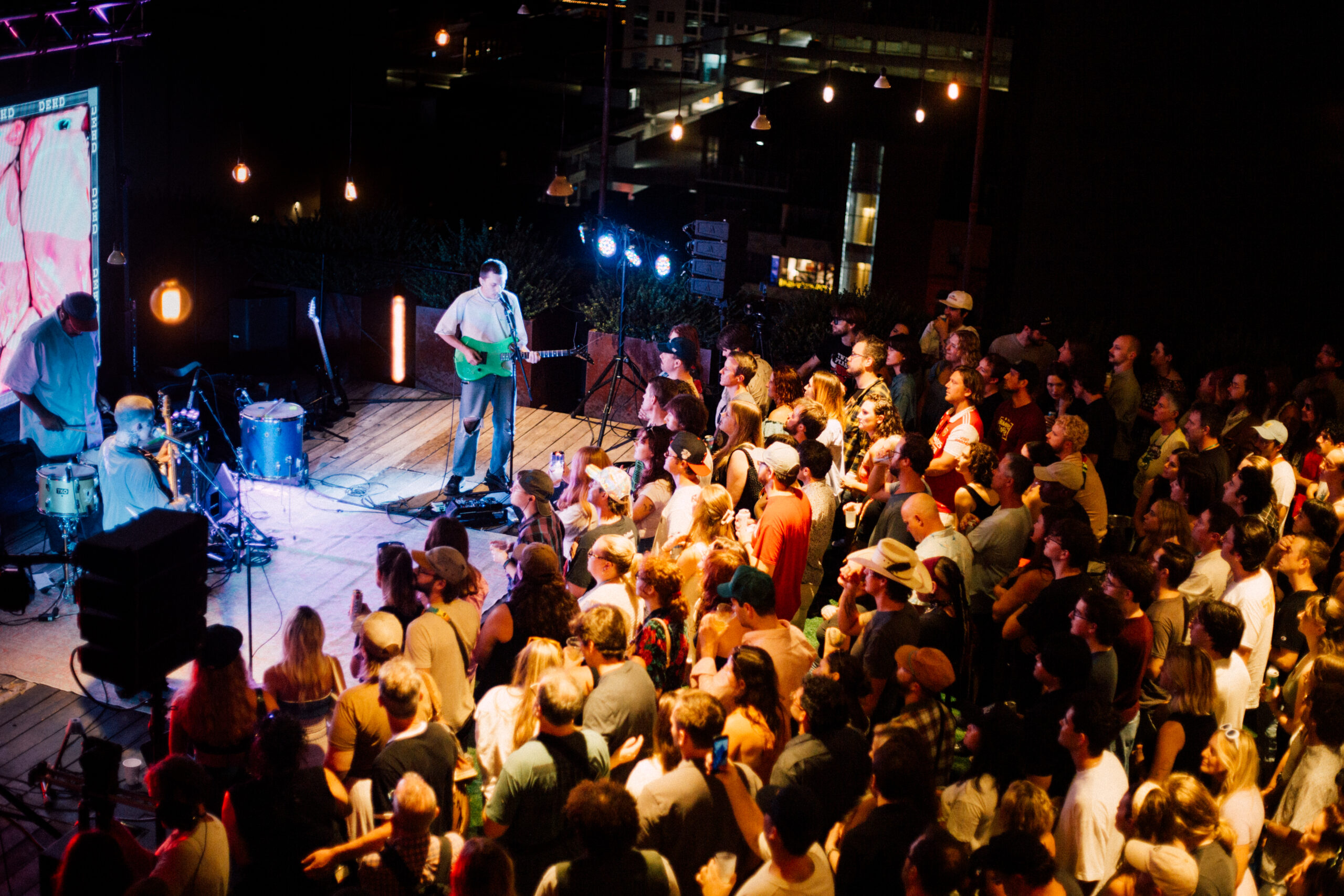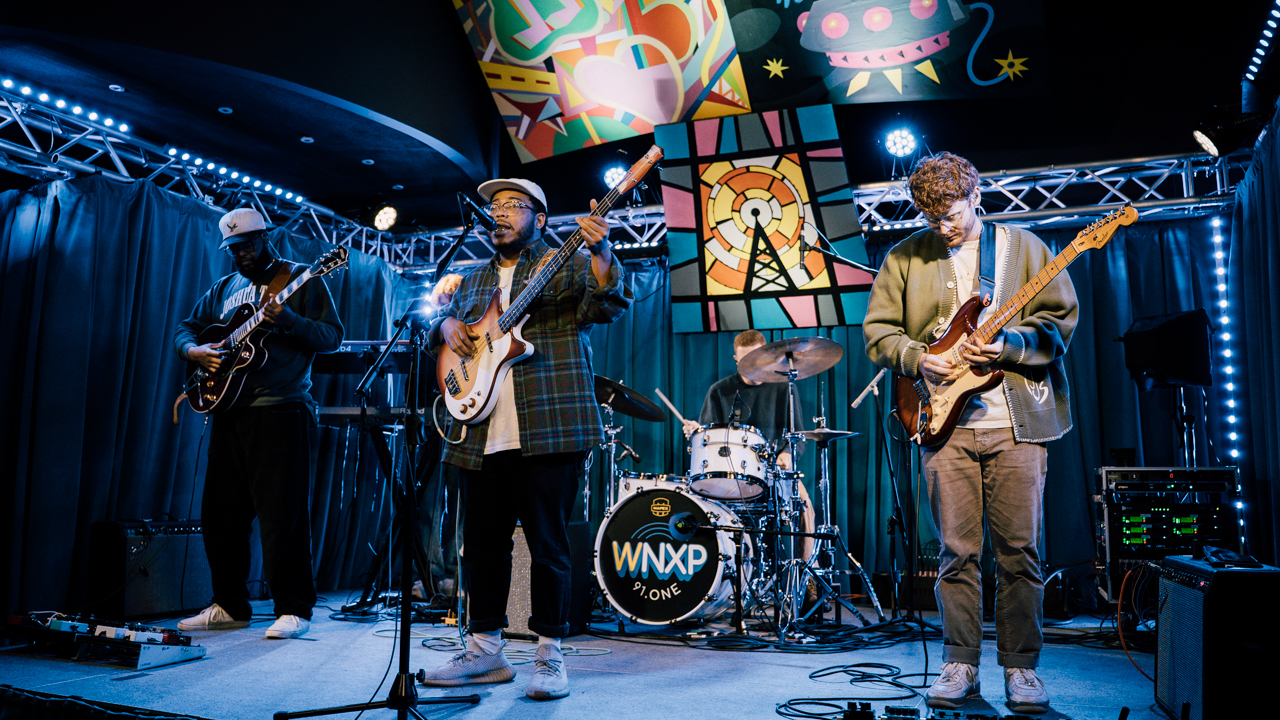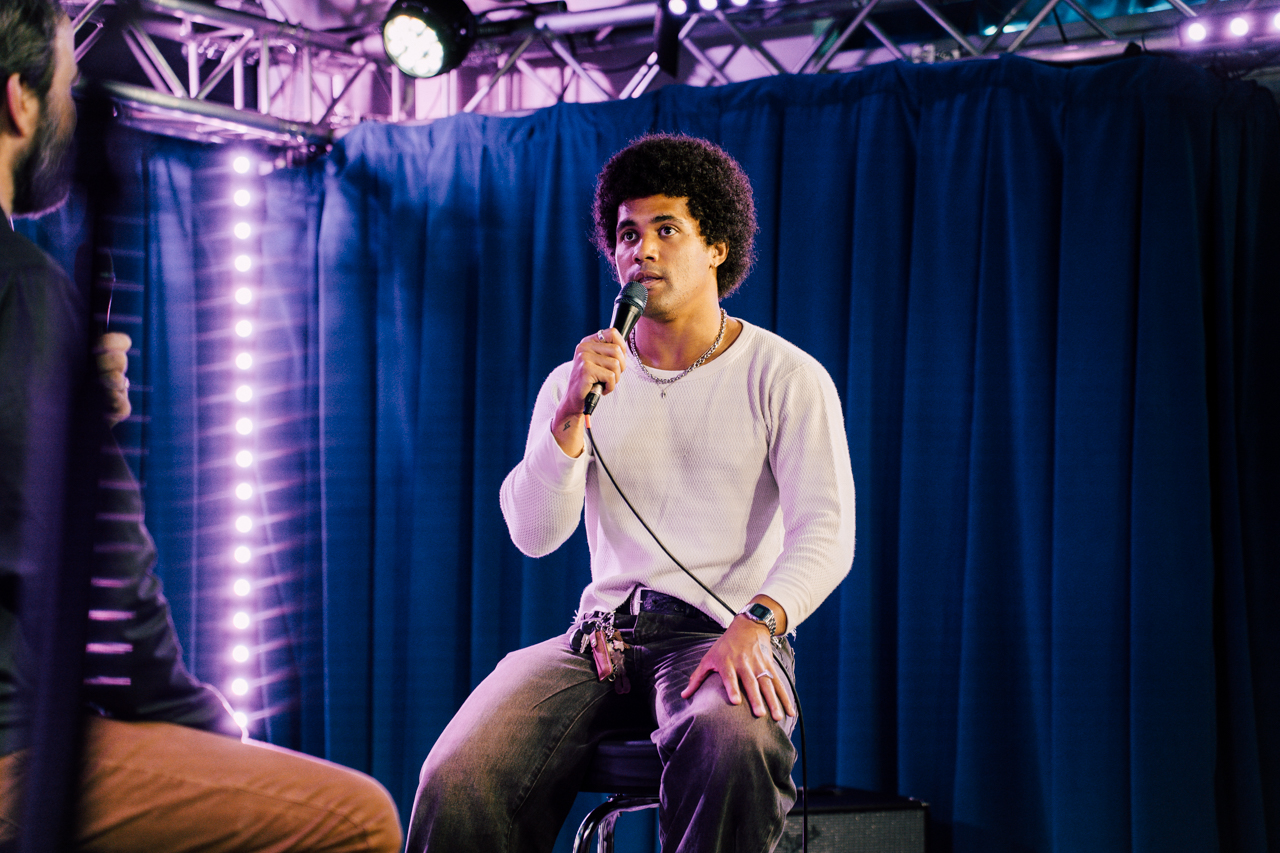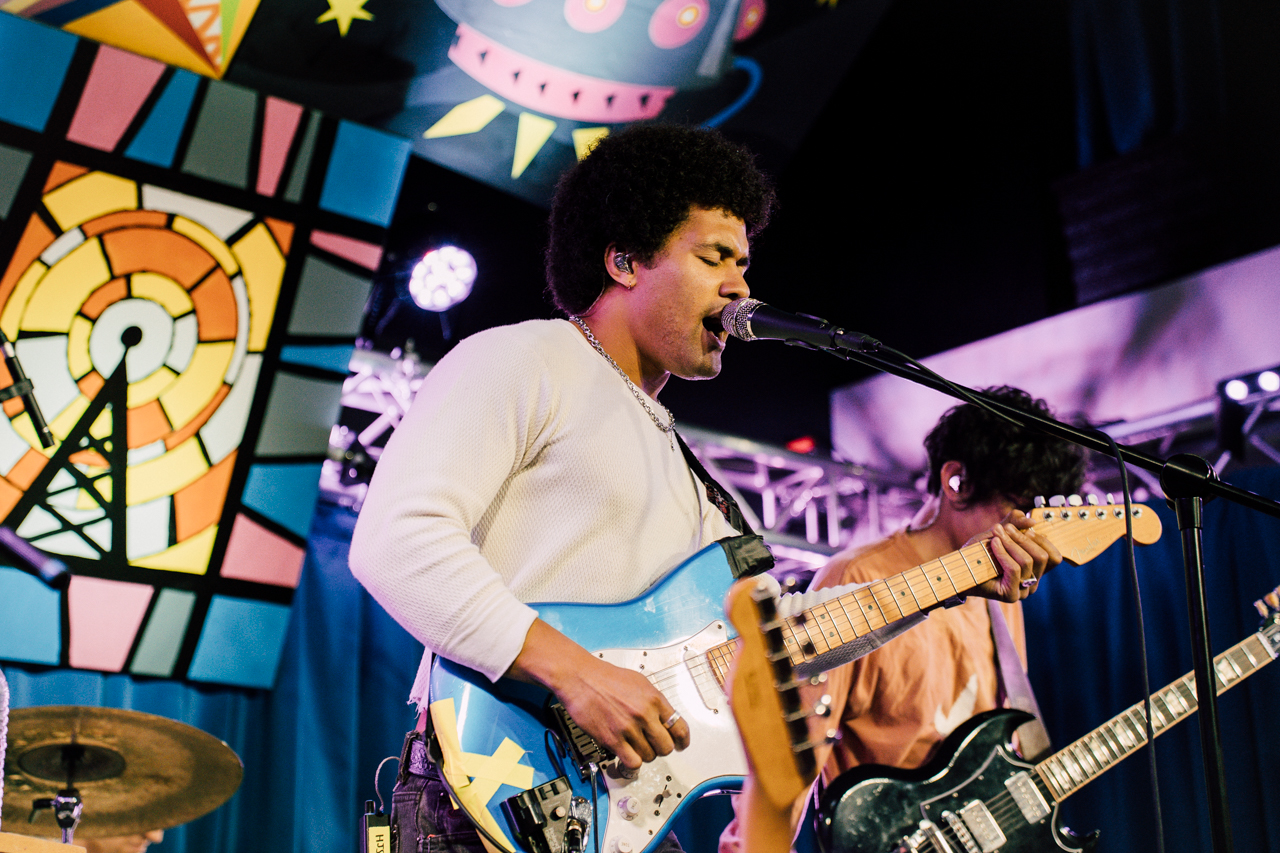Sometimes an artist will sneak in a lyric that reveals a little more about them than they are actually saying. That’s the feeling I got when I listened to the final line in this one song, “Fighting Back,” by Nashville-based artist R.A.P. Ferreira.
It is this one line in this one song, here, I believe Ferreira reveals his belief in Art as the ultimate power, and that he himself is a steward of its mystery. So I had to dig into this line and its origin:
I know it’s epic poetry that keeps the cosmos orbiting.
“Fighting Back”
It’s this big idea with a single place of origin. Ferreria told me, when asked, “I think I took this anthropology class in college. I can’t remember where in South America it was…”
He was scant on the details. This was the idea that stuck with him, though:
“There is some group of monks. And every morning these brothers come out and they sing off this cliff,” he recalled. “For as long as time has been recorded they have sang off this cliff. And they say the whole world exists because they do that. And they are like, ‘If we don’t wake up and do this, everyone will die.'”
Ferreira said that he couldn’t remember the name of these people who keep our world in line. The only thing he remembered was the name of the professor of his freshman year anthropology class in central Wisconsin.
“Dr. Hyland — Doctor Sabine Hyland, who is a very famous anthropologist. If you know anthropology the person I just name-dropped you’re gonna be like, “Damn! You were in her class?! And you can’t remember the name of the f***ing people?!”
“They are the Kogi and they live in Columbia.”
I found her. Dr. Hyland called me from Scotland, where she now works at the University of St. Andrews.
“Most anthropologists think that the Kogi are the remnants of this really large, powerful society that was basically destroyed in the sixteenth century when the Spanish arrived,” Hyland explained. “But a small group fled to the mountains.”
She said that the men that sing the sacred song are chosen by divination, or dreams, when they are four years old. And then they go from the mountains to the caves and for eighteen years they learn the secrets that they will pass down when they emerge. When they complete the process they are responsible for singing the sacred song.
“They believe that the humans and the Earth are in reciprocity. We have to give to the Earth and the Earth gives to us. But if we stop the Earth is going to stop as well. Then there is going to be a collapse. The rain will stop. You’ll have earthquakes, you’ll have destruction, and the cosmos is not going to orbit anymore.”
R.A.P. Ferreira connects the dots: “And that’s how I felt about me and Kev on the beat. It was that same energy. Like, this song, this is why everything is okay.”
“When I listen to Rory’s (R.A.P. Ferreira) songs, it’s so wonderful to think of him. I remember him in class being kind of shy. Kind of in his own head a lot,” Hyland told me. At the time we connected about the Kogi, Ferreria’s professor had yet to hear the song “Fighting Back.”
“I just think anthropology is the greatest thing,” she said. “And getting the word out is so much fun.”
I couldn’t agree more.
*For those wondering, a couple recordings of Kogi’s sacred songs do exist, but we agreed that it would be unethical to play a sacred song that is not meant to be recorded. We too are stewards of it’s mystery.




